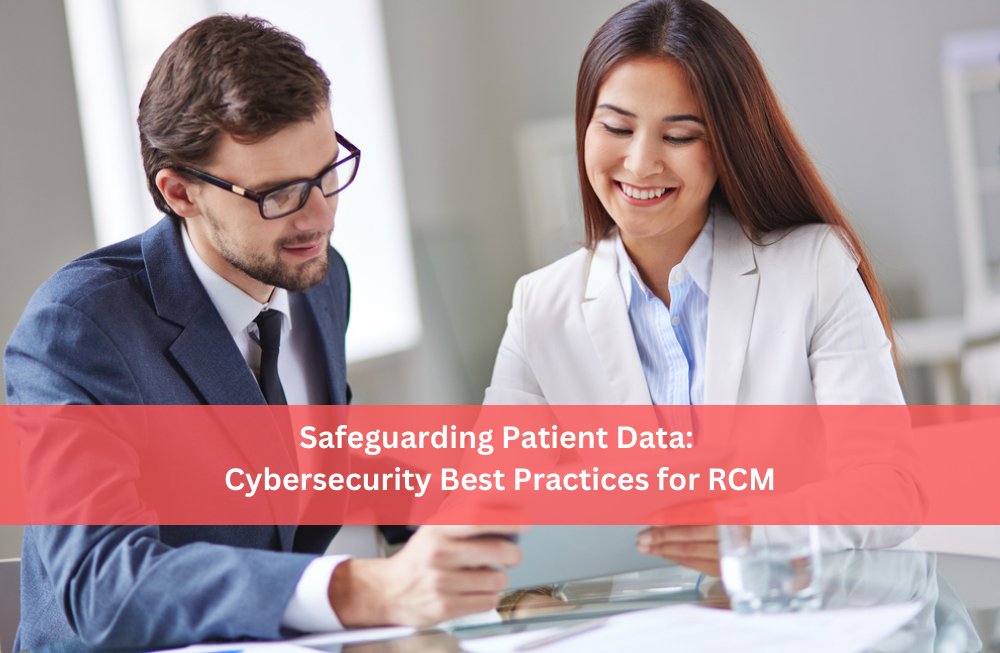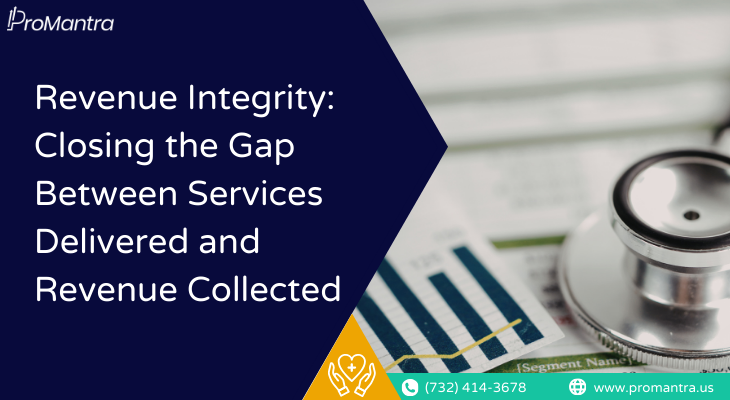Safeguarding Patient Data: Cybersecurity Best Practices for RCM
In the digital age, every click, every keystroke, and every interaction with patient data carries immense significance. Healthcare providers must navigate a landscape fraught with cyber threats while upholding their commitment to patient care.
Patient data, the lifeblood of modern medicine, is under constant siege from cybercriminals who recognize its immense value.
Revenue cycle management plays a critical role in this process, as it involves the handling of patient financial and personal information. To ensure the security and integrity of this data, healthcare organizations must prioritize cybersecurity.
In this blog, we’ll delve into the crucial strategies for safeguarding patient data from relentless cyberattacks while carrying out different RCM activities.
Understanding the Stakes
Patient data is the linchpin of revenue cycle management operations. This data encompasses not only medical records but also billing and insurance information. Any breach of this data can have severe consequences for revenue cycle activities, leading to:
- Financial Repercussions: Revenue cycle management relies on accurate medical billing and claims processing. A data breach can disrupt these processes, causing revenue loss and compliance fines.
- Operational Disruption: A breach can disrupt RCM workflows, leading to delayed reimbursements, increased administrative work, and potential legal actions.
- Reputation Damage: Patients trust healthcare organizations to protect their data. A breach can erode trust, impacting patient retention and brand reputation.
Common Cybersecurity Threats in Revenue Cycle Management
RCM professionals must be vigilant against various cybersecurity threats:
Phishing Attacks: Cybercriminals may target RCM staff with deceptive emails, seeking login credentials or sensitive data. This could compromise billing information or patient insurance data.
Ransomware: Ransomware attacks can lock critical prior authorization, medical billing and coding, and AR systems, leading to billing delays and disruptions in revenue collection.
Insider Threats: Disgruntled employees or contractors with access to systems can intentionally or unintentionally compromise security, potentially leading to data leaks.
Data Theft: Cybercriminals may aim to steal patient billing data for financial gain, which directly impacts processes.
Vendor Vulnerabilities: Third-party vendors often play a role in revenue cycle management software and services. Vulnerabilities in vendor systems can expose sensitive patients’ and healthcare providers’ data to cyber threats.
Cybersecurity Best Practices for Revenue Cycle Management
- Access Controls and User Authentication:
- Implement role-based access controls to restrict access to patient data based on job roles within RCM. This is particularly important while carrying out prior authorization and eligibility verifications activities.
- Enforce strong user authentication, including biometrics and multi-factor authentication (MFA), for RCM system access.
- Data Encryption:
- Encrypt patient data both in transit and at rest, ensuring that even if intercepted, it remains protected.
- Implement secure channels for transmitting sensitive billing and personal information.
- Regular Software Updates and Patch Management:
- Continuously update RCM software and systems to patch known vulnerabilities.
- Maintain a regular schedule for security patches to reduce exposure to threats.
- Employee Training and Awareness:
- Conduct cybersecurity training for staff to recognize and report potential threats.
- Foster a culture of vigilance, emphasizing the importance of cybersecurity within revenue cycle teams.
- Incident Response Planning:
- Develop and regularly update an incident response plan specifically tailored for RCM processes.
- Ensure that RCM staff know their roles in the event of a data breach and can act swiftly to mitigate damage.
- Vendor Risk Management:
- Assess the cybersecurity practices of third-party vendors providing RCM solutions.
- Ensure that vendors adhere to security standards and share the responsibility for protecting patient data.
Regulatory Compliance
Revenue cycle management professionals must comply with healthcare regulations like the Health Insurance Portability and Accountability Act (HIPAA). HIPAA mandates stringent cybersecurity requirements for safeguarding patient data, including:
- Secure storage and transmission of patient billing and insurance data.
- Detailed record-keeping and audit trails to track access to patient data.
- Mandatory reporting of data breaches and security incidents.
Technology Solutions
Incorporate cybersecurity technologies tailored for revenue cycle management, such as:
- Intrusion Detection Systems (IDS): Implement IDS to monitor revenue cycle management systems for suspicious activities and potential breaches.
- Firewall Solutions: Employ advanced firewalls to protect networks from unauthorized access and malware.
- Threat Intelligence: Utilize threat intelligence services to stay updated on evolving cyber threats that may impact RCM operations.
- AI and Machine Learning: Leverage AI and machine learning for advanced threat detection in RCM systems, enabling rapid identification of anomalies.
Employee Training and Awareness
Revenue cycle management staff should be well-versed in cybersecurity concerns. Training should cover:
- Phishing Awareness: How to recognize and report phishing attempts, especially those targeting billing or financial information.
- Secure Data Handling: Proper procedures for handling, storing, and transmitting patient billing data securely.
- Incident Reporting: The process for reporting potential cybersecurity incidents within the RCM workflow.
Continuous Monitoring and Adaptation
Cyber threats are ever-evolving, and RCM professionals must adapt continuously. Key considerations include:
- Regular Security Assessments: Conduct routine security assessments and penetration tests to identify vulnerabilities in RCM systems.
- Audits: Regularly audit processes for compliance with cybersecurity best practices and regulations.
- Threat Intelligence Integration: Stay updated with the latest threat intelligence specific to proactively address emerging risks.
In the realm of revenue cycle management, safeguarding patient data is non-negotiable. Cybersecurity best practices, tailored to the intricacies of RCM, are vital to maintaining the integrity of financial and patient information.
At Promantra, we understand the importance of safeguarding the personal and financial data of patients and healthcare providers. We take every measure and diligently comply with all rules and regulations to ensure the highest level of data security and HIPAA compliance.
If you’re in search of a reliable and trusted revenue cycle management provider that not only prioritizes HIPAA compliance but also boasts advanced cybersecurity measures, look no further. Contact us today to discuss your requirements, and let us partner with you to safeguard your patient data and enhance your RCM operations.




